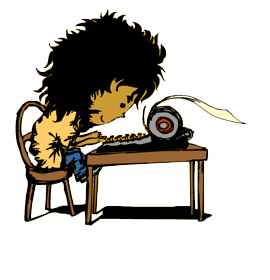Jam Fruit Tree
- Shehan
- Jun 7, 2022
- 2 min read
Updated: Jun 24, 2025
NPR (c) 2012.
Tribute to the book that started modern Sri Lankan writing.

For many, the similarities between Carl Muller and Kurt Cobain may not be immediately apparent. Can a dead-at-27 rock god from Seattle have anything in common with a very-much-alive 77-year-old teller of tales from Kandy, Sri Lanka?
For me, the two are linked for more reasons than one. I discovered both of them in 1992. The year Nirvana released Nevermind. The year Carl Muller won the Gratiaen Prize for The Jam Fruit Tree.
I'd always loved guitars and the noises they made, but until I saw Nirvana, I didn't think I'd ever play one. I thought rock stars had to dress in designer leather, play impossible solos and be unattainably talented.
Kurt gave rock its simplicity back. He told us wannabes that anyone could step up to a mic, dressed in ordinary clothes and say something honest with a few jangly chords.
Carl Muller's The Jam Fruit Tree did no less for Sri Lanka writing. The bawdy saga of the Von Bloss family told Sri Lankans that we could write our own stories in our own voices. That we didn't need to sound like Englishmen who lived 100 years ago. It showed us that literature didn't have to be aristocratic and elegant. It could be mad, bad and filthy. Who knew?
The story of the Von Bloss family's misadventures wavered between satire, farce and chaos. It was filled with potty-mouthed characters who spent its pages, "putting" a drink, "putting" a party or "trying to put" a screw.
Much attention has been given to Sri Lankans who throw bombs at each other, but precious little had been written about our Burgher community, the happy-go-lucky descendants of Lanka's European colonisers. While the Sinhalese and Tamils fought over land and language, the Burghers ate, drank, made merry and, according to our man Carl, molested anything that moved.
What a delight to read a romp filled with sex, slapstick and a language that came from our vernacular, littered with slang and swagger. A respite from those lofty tomes on the Sri Lankan condition that always tried a bit too hard.
Some may criticize The Jam Fruit Tree for its vulgarity and misuse of language, but for me that was precisely its appeal. It opened doors and gave us permission to rewrite the rhythms of our prose. To tell off-beat stories and to use an off-kilter voice.
While Kurt's influence on rock and roll may not have survived the 90s, Carl's remains with us today. Modern Sri Lankan writing began with him. And thanks to works like The Jam Fruit Tree, who knows where it could go?







Comments